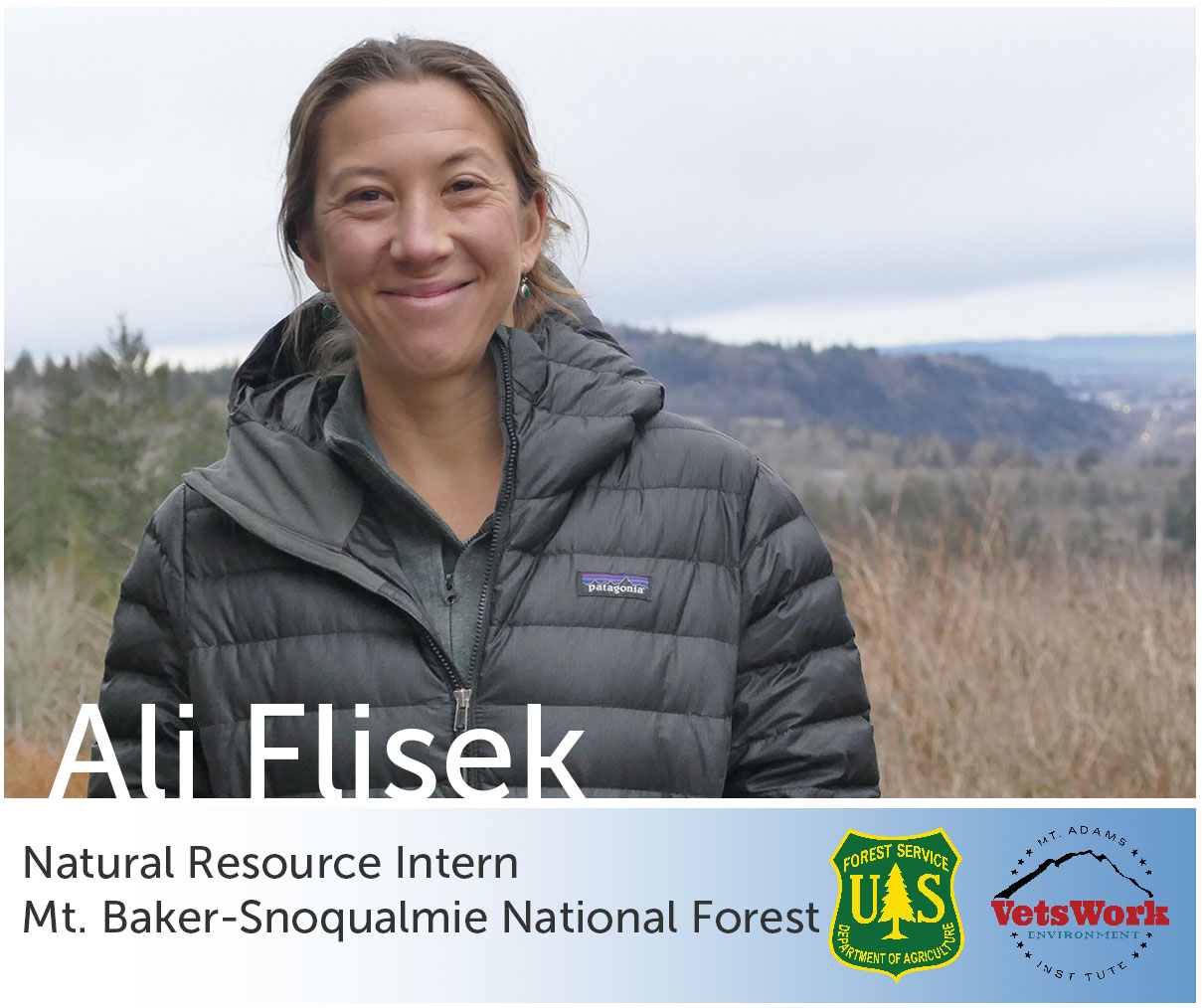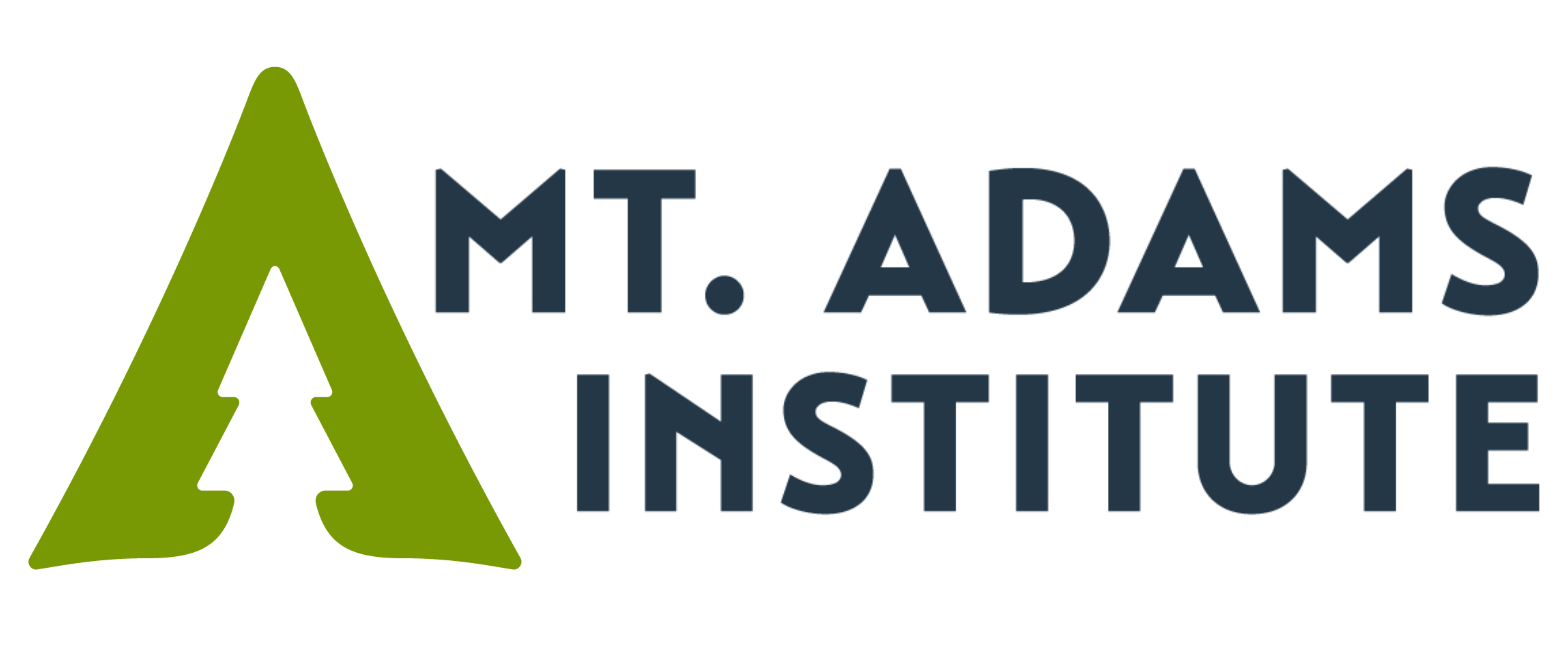
I’m sure this is said by most VetsWork members but “Man these months have flown by!” It’s hard to believe my 10-month internship as the Mt. Baker Snoqualmie National Forest natural resource intern is coming to an end. Though the days are getting shorter and nights colder, there is still lots to be done. During my time here I feel that I’ve really received a deep understanding of the Forest Service’s motto and complex mission of “caring for the land and serving the people.” I’ve had the opportunity to be involved with specific projects through multiple lenses as I’ve assisted with the different resources on the forest. I was able to work with the botany specialist to identify and survey both native and non-native species surrounding storm damage sites and then turned around and worked with the engineer specialist to conduct surveys of the adjacent streams that will be used by the fish biologist to design the repair of the damaged area. I have come to appreciate the many angles the Forest Service must approach problems with and I feel it has given me a very well-rounded knowledge base to draw from as I search for the next opportunity.
One particular project I’ve been involved with for the majority of my time here and one that also fulfilled my community action project, a requirement of the program, is the design and implementation of a native pollinator garden on a local parcel of land here. The site is located at Snoqualmie Point Park on adjoining land with the city of Snoqualmie and the Forest Service. The main objective of the park which is perched on a hill is to create and maintain the spectacular views of the surrounding mountain peaks and the historic Snoqualmie Valley many visitors travel here to see. The city has been working with the Forest Service for a number of years now to create “view sheds” to maintain those views by cutting sections of the land to free them of timber that was blocking the views. With no immediate plans to replant the area, the site was quickly overtaken by a slew of invasive species as well as native early seral species but became an entangled mess, unsuitable for wildlife habitat and very unsightly.
With the help of the Forests’ ecologist and forester, ideas of planting a pollinator garden were developed as a solution. I have to admit I was a little overwhelmed at first with the complexity of the project and the difficulty of ground as I had never done anything like this before. As the project manager I was tasked with the duties of coordinating with the multiple non-profit partners involved, designing and selecting the native shrub species to be planted, working with a contractor, and hosting the volunteer groups that would be performing the hard labor at the site. Once the Student Conservation Corps crew made significant headway clearing the area of brush, debris, and blackberries the potential for what was possible began to emerge.
With the guidance from restoration professionals, we were able to select and obtain 8 different Washington native shrub species that would not only improve the quality of the site and surrounding forest ecosystem but create valuable native pollinator habitat and food source, a Forest Service wide initiative. I spent months researching, planning, and visiting the site countless times, all leading up to the planting day where 25 REI employees came to volunteer. The day ended with over 200 native shrub species planted and more than 50 yards of mulch spread on the site. It was really an incredible experience to witness the land transform from a “jungley” mess with little wildlife benefit to a diversified native habitat that will not only provide food and shelter to wildlife but also benefit the local communities and many visitors that receive the services provided by having a healthy and more resilient ecosystem nearby.
As I start to plan for my next steps in life, I have begun the tedious task of job searching and updating my resume. This has allowed me to really reflect back on everything I’ve done and all the new accomplishments I’ve received during my internship. I truly am grateful for having gone through this experience and can’t wait for what opportunities lie ahead.

